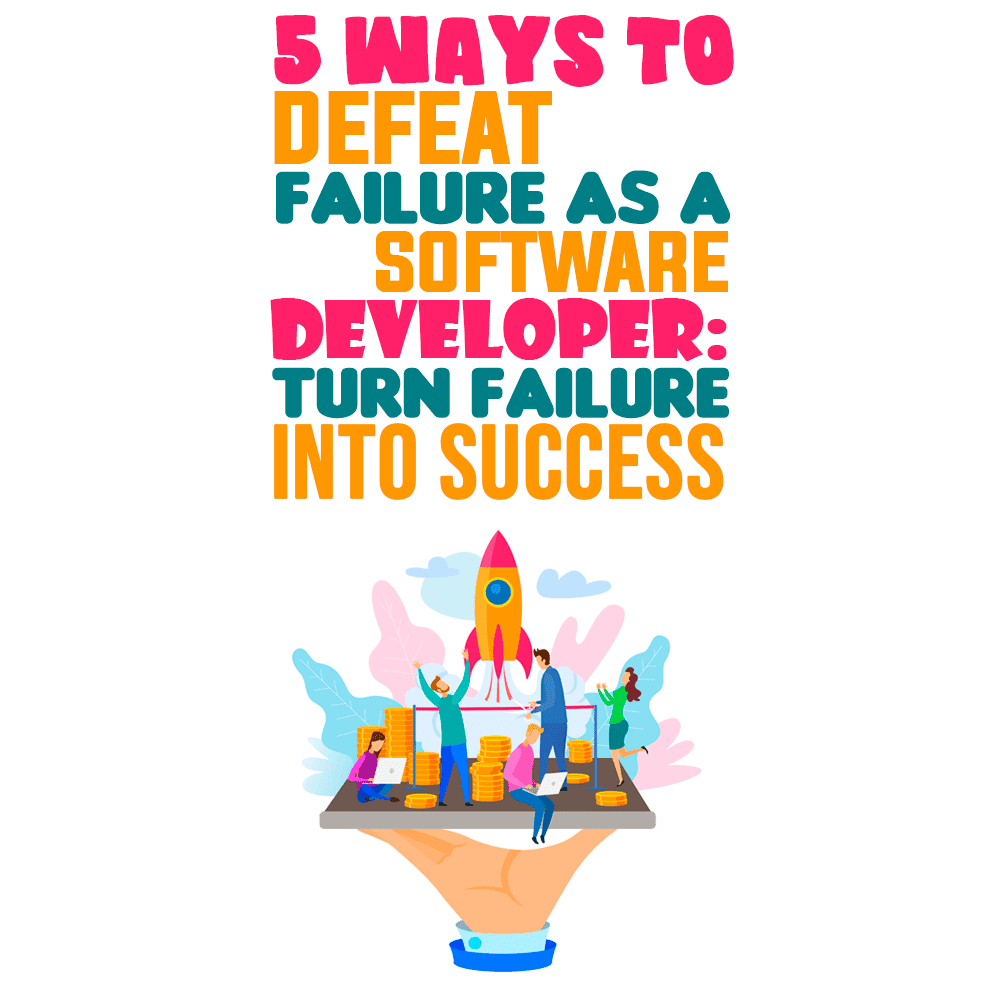 Failure is the most feared word in software development. We all experience failure at some point, but we’re often not taught how to deal with it.
Failure is the most feared word in software development. We all experience failure at some point, but we’re often not taught how to deal with it.
When you’re a software developer, failure is inevitable. We often have bugs that slip through QA and then get released into production, where they cause havoc for users. We often write code that doesn’t work the way we expected. Sometimes, we find ourselves stuck on a problem with no idea of what to do next.
The biggest problem with failure is that it’s hard to talk about and even harder to learn from. As a result, our ideas stagnate, our careers plateau, and we never reach our full potential.
But it’s important to use every challenge as an opportunity for growth and improvement rather than letting them hold you back or make you feel less worthy because things didn’t go according to plan.
Overcoming challenges is very hard, but this article will give you five powerful ways of dealing with challenging situations that will help you become a successful software developer.
Properly Identify and Document Issues
One of the most important parts of overcoming challenges is properly identifying and documenting issues.
For software developers, you can start with bugs. The faster and more specific you can be with reporting and tracking bugs, the faster you will resolve them and improve your code quality. Remember that every bug is a chance for you to improve your code.
Identifying issues is not always easy, but if you can find out what went wrong and why, you’ll be better able to fix the problem. The more often you do this, the better your code will become.
If you don’t document an issue now, you might not remember later on when you have fixed it. Documenting bugs helps you learn from your mistakes so that they don’t happen again in the future.
Action step: Have a place where you document and log all your bugs. This can be a spreadsheet, text file on your computer, or even a physical journal.
The key is to have a place where you can easily access this information so that when you encounter an issue in the future, you can use your notes to help get the problem solved quickly.
Foster Psychological Safety
In 2012, Google set out to figure out what makes a team effective. What they found was that the most important thing is psychological safety. What makes a team effective is not how smart or good everyone is but whether people feel safe within the team to take risks and make mistakes.
You need to create an environment where it’s OK to fail. Make sure you encourage your teammates to take risks and make mistakes, and also make sure not to punish them when they do. That will create a positive environment where you will learn how to deal with challenging situations and make improvements.
Action step: Focus on solutions (“How can we do things better the next time around?,” “What can we do together to establish a game plan for the future?”), and avoid placing blame (“Why did you do this?”).
For example, when working with your team, make sure you provide support and assistance in helping them overcome issues. If someone makes a big mistake, don’t instantly chastise them; help them understand what they did wrong and how to go about fixing it. That will create an environment where people say “I don’t know” or “I made a mistake.”
It’s important to create an environment where people feel safe enough to open up, express themselves, and be vulnerable in their learning.
Don’t Be Hard on Yourself
We are not alone in everything we do—success is supported by others, and setbacks are impacted by things outside of our control.
When you fail, it’s easy to beat yourself up and compare yourself to others who seem to be better than you. But as a software developer, there are so many things you can’t control. When you compare yourself to others, you’ll only make it more difficult on yourself and hinder your own growth.
Remember, you are not alone in your challenges and failures. Many people are out there failing and still carrying on with their lives. You need to remember that no one is perfect, and everyone makes mistakes, even the most successful people in the world.
Action step: Try keeping a gratitude journal where every evening or before going to bed, you write three things that went well for you during the day and why they went well. This will help remind you of all your accomplishments throughout the day, which will make it easier for you to avoid being too hard on yourself about mistakes.
Learn From Other People’s Mistakes
Learning will help you become better at your craft. The more you know, the less likely you are to fail.
A great way to learn is by analyzing other people’s mistakes. When you see a mistake someone else has made, don’t bother pointing it out or shaming them for it. Instead, think about how they could have avoided it and what you would have done differently.
Action step: Analyze post-mortems from big companies that experienced failure. See what mistakes they made and what they learned.
The Cloudflare example is a great way to show the value of post-mortems.
At Cloudflare, they had an incident where all traffic coming from America and Europe came through a single data center. Enormous traffic resulted in the data center crashing down because there was too much demand on this resource at once. What happened? They found out that one engineer had made a typo in their data center network configuration.
Think About the Long Term

It’s important to have a long-term vision for what you want and where you want to be in the future.
Think 5-10-15 years down the road and work toward that goal.
If you are a junior software developer, your goal is probably to be a senior or a tech lead who can oversee their teams. To get there, you will need to pass a certain number of tests and work in a hands-on capacity before being considered for higher positions.
Software development is so unpredictable that most of the time, theoretical knowledge will not get you very far.
For example, when your code makes it to production, there are often so many unforeseeable factors that can make your code fail. If it happens, try to be the first one to encounter them and fix them. That will give you a chance to understand the circumstances that led to the challenging situation.
Action step: Figure out what your long-term goals are. Don’t be afraid to dream big. Once you have them, remind yourself of the end goal every morning and throughout the day with sticky notes, screensavers or photos with captions. Having long-term goals will help you realize that everyday challenges are just steps you need to overcome on your way there.
Take Action and Turn Failure Around
Dealing with challenges is an essential part of being a software developer. If you experience failure, don’t let it discourage you from trying again. Failing is one of the best ways to learn and become an even more skilled software developer.
Remember that your challenges are opportunities for growth.
It’s OK to feel upset about it, but try not to let it discourage you from doing what you love. Don’t feel bad about failing. Instead, turn it around so that next time, you’ll succeed.
It’s your time to apply what you have learned from the article and make a difference in your life. The most important thing about this is to take action. The action steps I offered you are a great place to start. Take a pen and paper, and write the steps you need to do in order to overcome failure as a software developer. Start today!
